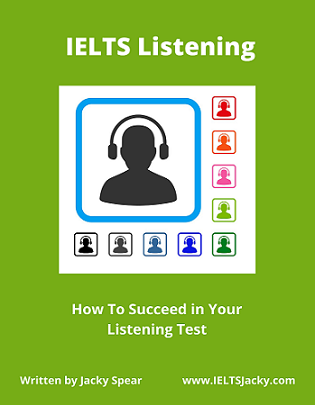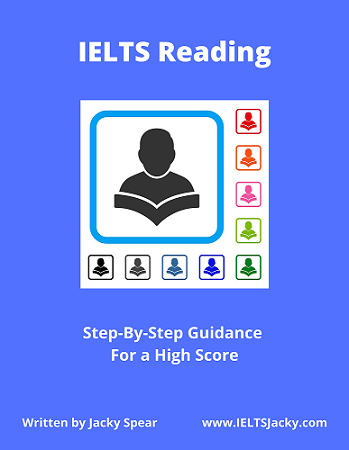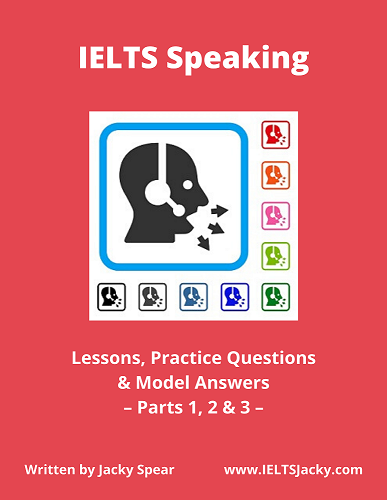IELTS Listening Strategies
This lesson
will teach you 3 important IELTS listening strategies. They are:
|
1) Question analysis 2) Answer prediction 3) Keyword clues |
Taking the time to learn and practice them will make answering Listening questions a lot easier and undoubtedly increase your score.
1) Question Analysis
The listening
test contains four recordings. Before listening to each of them you will be
given time (around 20-35 seconds) to read the questions they relate to.
Use this time well. It might not sound very long but it’s long enough to do the important preparation work that will enable you to complete the questions successfully.
When analysing the questions, there are 3 key things to note:
|
a) Which
section of the test are they in? b) What type of questions are they? c) What sort of information do you need to listen for? |
These will all give you valuable clues to understanding the audio recording and identifying the correct answers.
a) Test sections
There are 4 parts or sections to the IELTS Listening test.
Section 1 – A conversation between two people set in an everyday social context (e.g. booking tickets to the theatre).
Section 2 – A monologue set in an everyday social context (e.g. a welcome talk for new college students).
Section 3 – A conversation between up to four people set in an educational or training context (e.g. a group of students discussing a university assignment).
Section 4 – A monologue on an academic subject (e.g. a lecture on wildlife).
If you memorise these, you will know the general context of each audio before it plays and how many people will be talking – one (a monologue), two people in conversation or a group conversation.
This might not seem especially important to know but any clues you have as to what you will be listening to will be helpful. This information will also help you to be better prepared mentally for the test which will reduce your stress level and enable you to think more clearly and listen more effectively.
b) Question types
The next part of this first IELTS listening strategy concerns question types.
You will be
asked a variety of different types of questions selected from this list. Most
types could appear in any of the four sections of the test.
You must be able to quickly identify what types of questions you are required to answer. Sometimes the introduction will tell you or it will be obvious, e.g. it’s a plan or map that requires labels. Other times, you will have to look more closely to decide.
As with everything, you will master this with practice.
c) What sort of information do you need to listen for?
Knowing the
type of question will help you to predict the sort of information you need to
listen out for.
I’ll say more about this in the second of our IELTS listening strategies. I also go into this topic in depth in the lessons on each of the questions types.
Click the links above or at the bottom of the page to see these lessons.
2) Answer Prediction
To predict an
answer is to say what type of word you think it will be based on the evidence
you have. That evidence will be in the question clues we’ve just been talking
about and the information in the questions.
We’ll look at an example in a minute but first, here are some things you may be able to predict:
|
Sometimes,
you'll be able to predict the actual word.
I cover synonyms and paraphrasing in more detail in this lesson: IELTS Listening Skills.
Here’s a form completion sample question to illustrate the strategy of prediction.
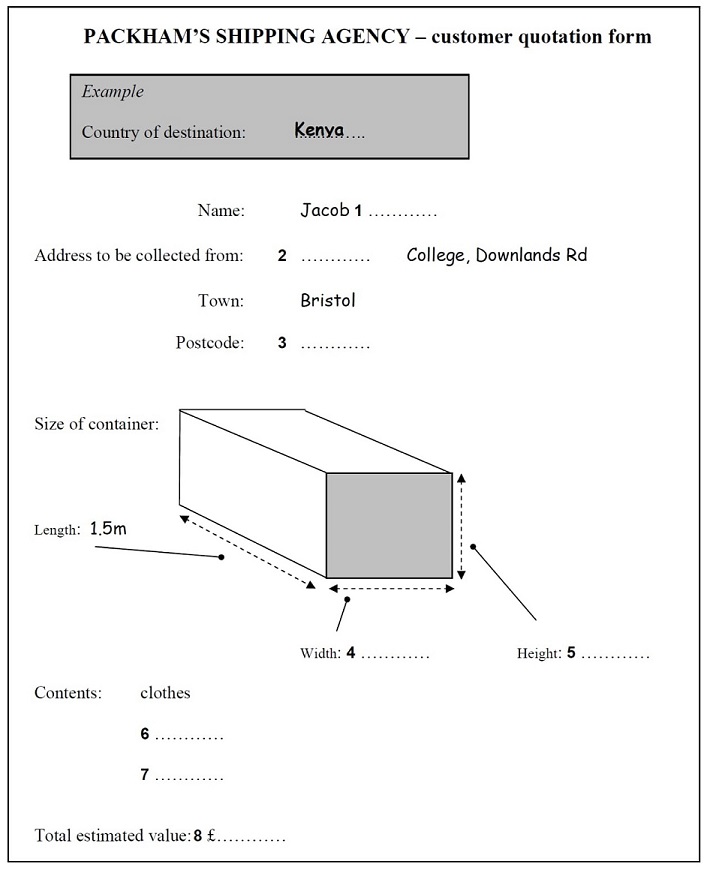
Source:
Official IELTS website www.ieltsessentials.com
These are the answer predictions we can make:
1 – a surname
2 – the college name
3 – a postcode made up of letters and numbers
4 & 5 – numbers of measurement
6 & 7 – nouns (items in the box)
8 – numbers written as a price
Answers 1 and 2 will be proper nouns so you must write them starting with a capital letter. This is another little clue that will ensure you get your answer exactly right.
You‘ll find lots more help with answer prediction in the IELTS Listening Skills lesson.
To sum up prediction, it is one of the most valuable of our IELTS listening strategies because it identifies the type of information you will need to listen out for in the recording.
3) Keyword Clues
Item number
three in our list of IELTS listening strategies is also to do with prediction
but particularly relevant for questions containing a lot of text as opposed to
a diagram, map, plan or table.
The technique is to identify the keywords or phrases in the question. Why? Because the answers will very likely be synonyms or paraphrasing of these.
I’ll illustrate this strategy with a sample question about hotels which requires you to match information.
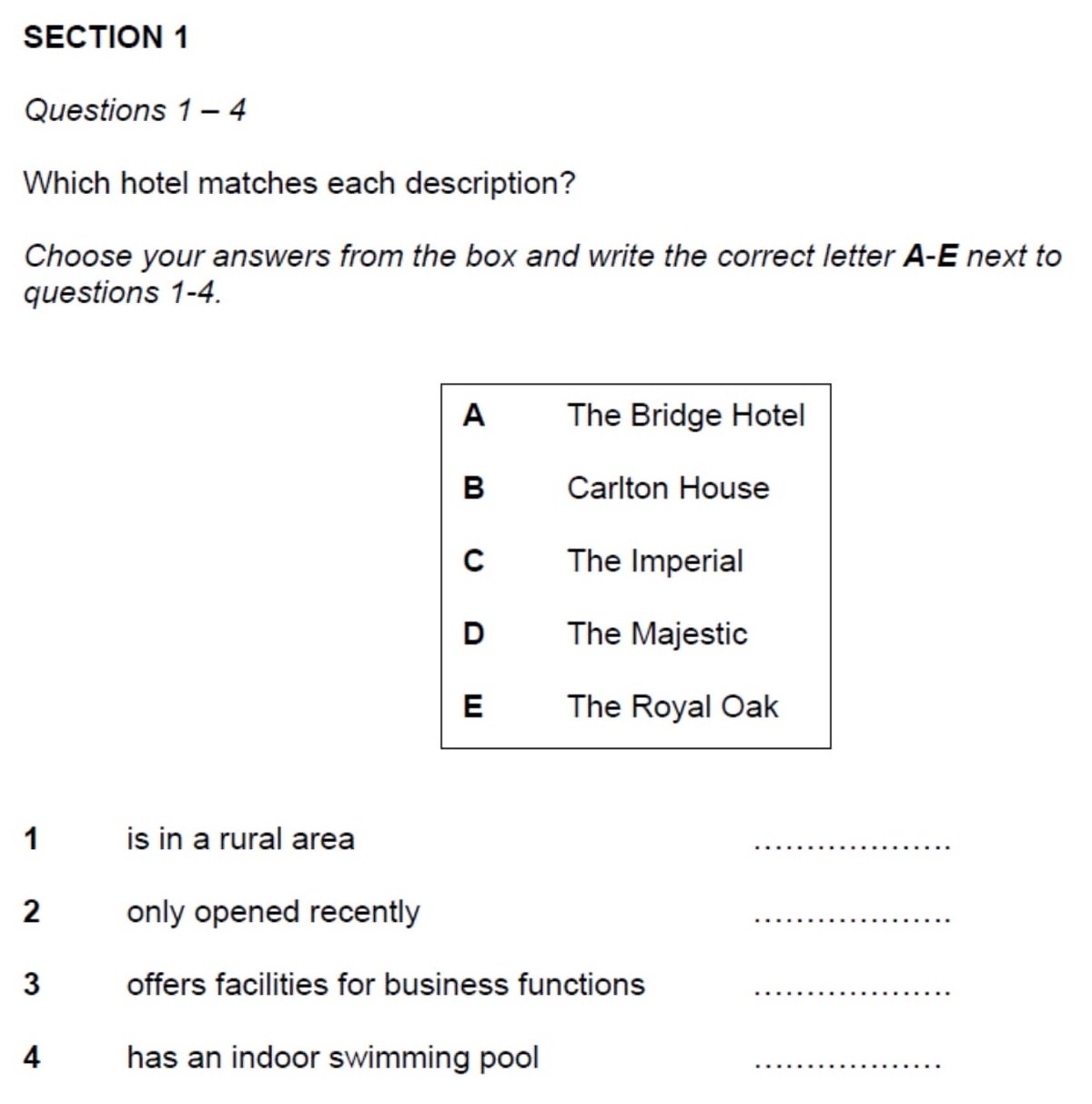
Source: Official IELTS website www.ieltsessentials.com
Step 1 is to underline the key words in the answers, e.g.
|
1 is in a rural area 2 only opened recently 3 offers facilities for business functions |
Step 2 is to quickly think of some possible synonyms (s) and related (r) words to listen out for in the audio.
Here are some that immediately come to mind:
|
Spending 30 seconds doing this will focus your mind on some key vocabulary to listen out for.
Here’s an extract from the recording for this question. Some of these words have indeed been used.
|
Hearing the key word synonyms and related words will help you to follow and understand the information in the audio text and more easily identify the answers.
I hope you find these 3 IELTS listening strategies useful. Remember, they will only help you if you practice using them.
Want to watch & listen to this lesson on IELTS Listening strategies?
Click on this video.
IELTS Listening – All Lessons
You'll see these 3 IELTS listening strategies in practice in many of these lessons.
IELTS Listening Test – Understand the format & question types. Know what skills are assessed. Also, discover 3 important marking tips.
Listening Strategies – Learn 3 essential listening strategies – question analysis, answer prediction & how to use keyword clues.
Listening Skills – Learn the 4 key listening skills needed for a high score highly. Examples from real questions.
Listening Exercises – 8 listening exercises to help you recognise & learn vocabulary for 6 common topics – time, numbers, prices, dates, letter names & addresses.
The 10 Question Types – Examples of all 10 types of Listening questions. Learn how to recognise & understand them. Links to 10 step-by-step lessons.
Listening Tips – Top 10 tips to bring you success in your Listening test. Essential information you need to know to achieve a high score.
How to Improve Your Listening Skills – 6 simple strategies essential for achieving a high score in the test.
Listening Practice – 4 practice techniques to develop your listening skills
Map & Plan Vocabulary – Learn the vocabulary you need for your test. 5 maps & plans with sample sentences containing common vocabulary of location & direction.
Listening Practice Samples – Short activities to improve your listening skills & help you learn topic vocabulary.
Genuine Full Practice Tests:
The 10 Question Types
Click the links below to learn how to answer each type of question.



